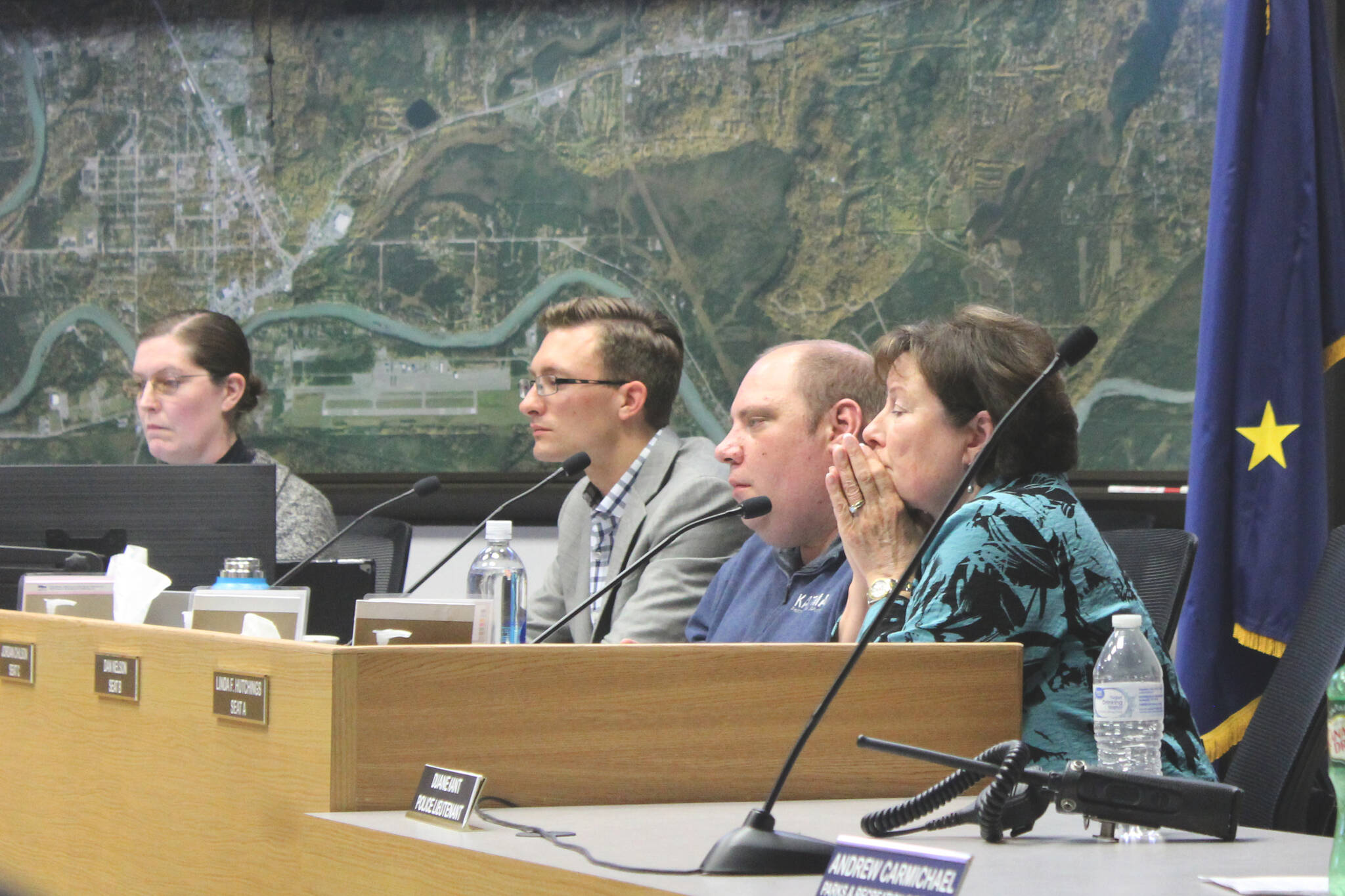The Soldotna City Council will consider next month limits to the use of some city housing as short-term rentals.
Under proposed changes to the section of city code regulating accessory dwelling units, those units would not be allowed to be rented as short-term rentals in some city zones.
Accessory dwelling units, also called ADUs, refer to subordinate, detached units that provide “basic requirements” for living, sleeping, cooking and sanitation and are located on a lot or parcel with an existing residence.
The Soldotna City Council in October approved a new section of city code that outlines regulations for accessory dwelling units, with the goal of expanding and diversifying the city’s housing inventory.
Soldotna prior to October allowed ADUs in a limited capacity, but owners were not allowed to charge people to stay in those units. Under the changes approved earlier this year, owners of a land parcel’s primary dwelling unit can now charge rent on an accessory unit. Both units are required to be located on the same parcel of land and must each have their own address and off-street parking place.
Anyone interested in establishing an accessory dwelling unit is required to submit a site plan to and obtain a zoning and building permit from the City of Soldotna. ADUs need to be built to the city’s building code standards and shall be no more than 750 square feet, according to city code.
Soldotna City Council member Jordan Chilson, who is sponsoring the proposed code change up for introduction Wednesday, raised concerns about the potential use of ADUs as short-term rentals during a council work session in late September. He said allowing rental ADUs may not address Soldotna’s housing shortage if that unit can be rented on a short-term basis.
The number of short-term housing rental units on the Kenai Peninsula is comparable to that of Anchorage, even though the Kenai Peninsula has about a quarter of the amount of total housing units. That’s according to analysis by Economist Gunnar Schultz, of Juneau, which was published in the Alaska Department of Labor and Workforce Development’s September issue of “Trends.”
Chilson’s proposed changes would prohibit ADUs from being used as short-term rentals in Soldotna’s single-family, single-family/two-family and multi-family residential zoning districts. Also, within the city’s rural residential zoning district, a parcel with an ADU could be used as a short-term rental, as long as either the ADU or principal dwelling unit is owner-occupied.
Chilson wrote in an Oct. 20 memo to council members that limiting the use of ADUs as short-term rentals will support people looking for long-term housing in Soldotna.
“This ensures that as we grow our housing stock within the residential districts, we are doing so for the benefit of our residents most in need of stable long-term housing while still allowing short-term rental options elsewhere in the city,” Chilson wrote.
Chilson planned to introduce an amendment addressing short-term rentals to the original ADU ordinance when it was approved in October, but was out of town during that city council meeting.
If approved for introduction at the city council’s Nov. 30 meeting, the proposed code changes would be up for a public hearing and final vote at the council’s Dec. 14 meeting.
Reach reporter Ashlyn O’Hara at ashlyn.ohara@peninsulaclarion.com.

